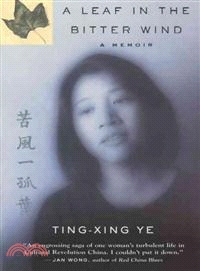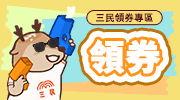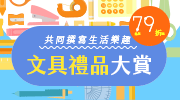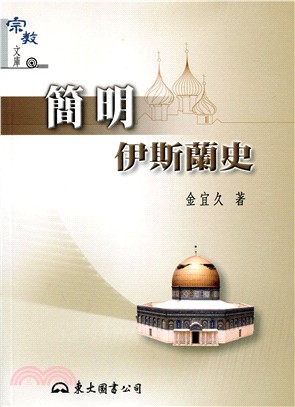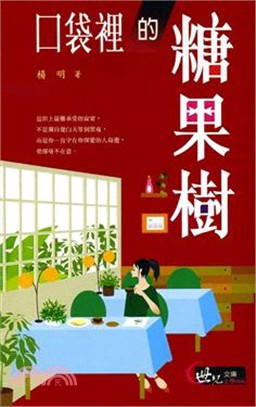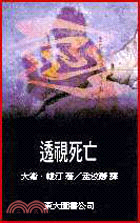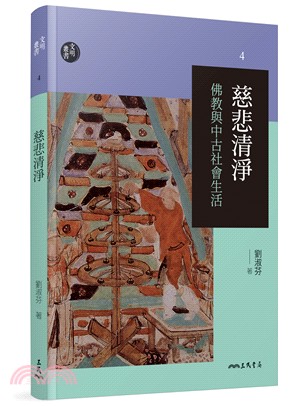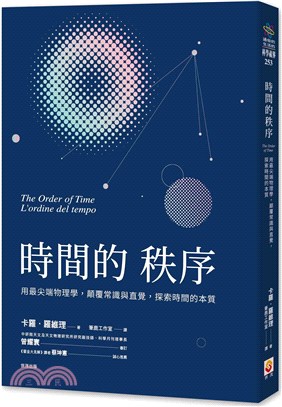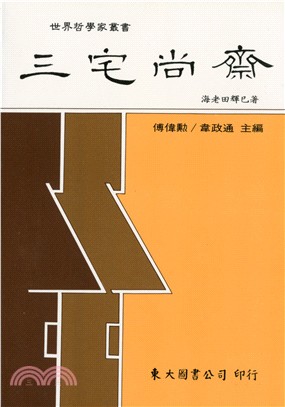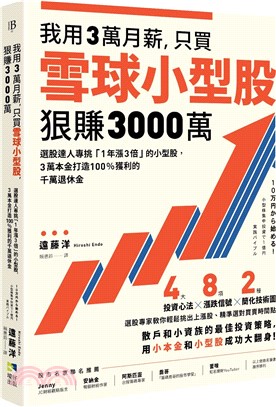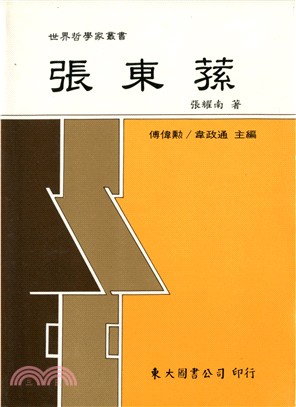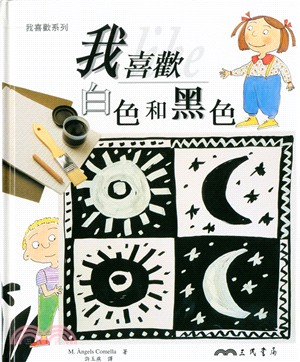相關商品
商品簡介
作者簡介
商品簡介
One of the best ways to understand history is through eye-witness accounts. Ting-Xing Ye’s riveting first book, A Leaf in the Bitter Wind, is a memoir of growing up in Maoist China. It was an astonishing coming of age through the turbulent years of the Cultural Revolution (1966 - 1974).
In the wave of revolutionary fervour, peasants neglected their crops, exacerbating the widespread hunger. While Ting-Xing was a young girl in Shanghai, her father’s rubber factory was expropriated by the state, and he was demoted to a labourer. A botched operation left him paralyzed from the waist down, and his health deteriorated rapidly since a capitalist’s well-being was not a priority. He died soon after, and then Ting-Xing watched her mother’s struggle with poverty end in stomach cancer. By the time she was thirteen, Ting-Xing Ye was an orphan, entrusted with her brothers and sisters to her Great-Aunt, and on welfare.
Still, the Red Guards punished the children for being born into the capitalist class. Schools were being closed; suicide was rampant; factories were abandoned for ideology; distrust of friends and neighbours flourished. Ting-Xing was sent to work on a distant northern prison farm at sixteen, and survived six years of backbreaking labour and severe conditions. She was mentally tortured for weeks until she agreed to sign a false statement accusing friends of anti-state activities. Somehow finding the time to teach herself English, often by listening to the radio, she finally made it to Beijing University in 1974 as the Revolution was on the wane — though the acquisition of knowledge was still frowned upon as a bourgeois desire and study was discouraged.
Readers have been stunned and moved by this simply narrated personal account of a 1984-style ideology-gone-mad, where any behaviour deemed to be bourgeois was persecuted with the ferocity and illogic of a witch trial, and where a change in politics could switch right to wrong in a moment. The story of both a nation and an individual, the book spans a heady 35 years of Ye’s life in China, until her eventual defection to Canada in 1987 — and the wonderful beginning of a romance with Canadian author William Bell. The book was published in 1997.
The 1990s saw the publication of several memoirs by Chinese now settled in North America. Ye’s was not the first, yet earned a distinguished place as one of the most powerful, and the only such memoir written from Canada. It is the inspiring story of a woman refusing to “drift with the stream” and fighting her way through an impossible, unjust system. This compelling, heart-wrenching story has been published in Germany, Japan, the US, UK and Australia, where it went straight to #1 on the bestseller list and has been reprinted several times; Dutch, French and Turkish editions will appear in 2001.
In the wave of revolutionary fervour, peasants neglected their crops, exacerbating the widespread hunger. While Ting-Xing was a young girl in Shanghai, her father’s rubber factory was expropriated by the state, and he was demoted to a labourer. A botched operation left him paralyzed from the waist down, and his health deteriorated rapidly since a capitalist’s well-being was not a priority. He died soon after, and then Ting-Xing watched her mother’s struggle with poverty end in stomach cancer. By the time she was thirteen, Ting-Xing Ye was an orphan, entrusted with her brothers and sisters to her Great-Aunt, and on welfare.
Still, the Red Guards punished the children for being born into the capitalist class. Schools were being closed; suicide was rampant; factories were abandoned for ideology; distrust of friends and neighbours flourished. Ting-Xing was sent to work on a distant northern prison farm at sixteen, and survived six years of backbreaking labour and severe conditions. She was mentally tortured for weeks until she agreed to sign a false statement accusing friends of anti-state activities. Somehow finding the time to teach herself English, often by listening to the radio, she finally made it to Beijing University in 1974 as the Revolution was on the wane — though the acquisition of knowledge was still frowned upon as a bourgeois desire and study was discouraged.
Readers have been stunned and moved by this simply narrated personal account of a 1984-style ideology-gone-mad, where any behaviour deemed to be bourgeois was persecuted with the ferocity and illogic of a witch trial, and where a change in politics could switch right to wrong in a moment. The story of both a nation and an individual, the book spans a heady 35 years of Ye’s life in China, until her eventual defection to Canada in 1987 — and the wonderful beginning of a romance with Canadian author William Bell. The book was published in 1997.
The 1990s saw the publication of several memoirs by Chinese now settled in North America. Ye’s was not the first, yet earned a distinguished place as one of the most powerful, and the only such memoir written from Canada. It is the inspiring story of a woman refusing to “drift with the stream” and fighting her way through an impossible, unjust system. This compelling, heart-wrenching story has been published in Germany, Japan, the US, UK and Australia, where it went straight to #1 on the bestseller list and has been reprinted several times; Dutch, French and Turkish editions will appear in 2001.
作者簡介
Ting-Xing Ye (her surname means “Leaf”) was born in Shanghai in 1952, three years after the founding of the People’s Republic of China. Her mother didn’t encourage education for girls, but Ting-Xing went to school anyway and eventually to university to study English language and literature, just as China was opening up to the west. In a moment of profound irony, she was offered one of the highest placements available for an interpreter, with the hated Secret Service. But her request for a transfer back to Shanghai, where she could look after her kind great-aunt, was accepted. Working for the municipal government, she dealt with the delegations of visiting royalty, presidents and other dignitaries. She married and, a year after the introduction of the one-child-per-family rule, gave birth to a daughter. After six years, she returned to Beijing to enter an international studies program, where she met William Bell, the Canadian author and teacher, who was teaching English at the college.
Although the official policy was to distrust foreigners, “I felt safe with Bill,” she says, and a deep bond began to form between them as she finally felt safe to express her true thoughts, at first through the journal he encouraged his class to keep. When Bell returned to Canada, they began a correspondence. Ye was tired of the oppressiveness of Chinese society, the constant surveillance at work, and her loveless marriage. When a scholarship to York University (which Bell had helped fabricate) arrived, she took it.
“My freedom came with a big price… I sometimes doubt my decision.” Ye made the hardest decision of her life when she did not return to China after her studies ended in 1989. The relief of being in a free country with a secure future that she could control was tempered by the anguish of separation from her daughter Qi-Meng. Her husband cut off all contact, making it impossible for her to see her daughter for over ten years; when she realized she might never see her again, she decided to write down a record of family memories that Qi-Meng might one day read. “Even now, I question whether I was too selfish. My fear is that people will read my book and think that I sought my own freedom at the expense of my daughter.” Happily, after years of searching — during which readers wrote with offers of help — she was finally able to make contact with her daughter again. Qi-Meng is studying to be a teacher at a university in China.
William Bell, who now lives with Ye in Orillia, Ontario, encouraged Ye to turn her memories into a book. At first she thought it was too personal, and didn’t want people to think she was looking for sympathy; when she began to write, it felt as though she were reliving the worst times. However, the freedom of her new life has unleashed Ye’s creativity. As an antidote to the painful memories dredged up writing the memoir, she also began to write children’s books based on folk tales and sayings she grew up with. She has now published four books for young readers, and continues to write. The contrast with her former life in totalitarian China could not be greater. Even private diaries were regularly examined during the Cultural Revolution. “You would never write on your own because it was too dangerous.”
Most of those who have published memoirs of tumultuous times in China defected to the United States, and they are from a variety of backgrounds. Nina Cheng’s Life and Death in Shanghai describes the six years she spent as a political prisoner; Rae Yang’s Spider Eaters tells how her Communist intellectual parents were denounced; Zhu Xiao Di’s Thirty Years in a Red House shows how his father suffered in spite of being a high-ranking Party member. The internationally renowned Wild Swans: Three Daughters of China, published in 1992, follows Jung Chang’s family from the 1870s to Deng Xiaoping’s reforms. Meihong Xu’s Daughter of China also
Although the official policy was to distrust foreigners, “I felt safe with Bill,” she says, and a deep bond began to form between them as she finally felt safe to express her true thoughts, at first through the journal he encouraged his class to keep. When Bell returned to Canada, they began a correspondence. Ye was tired of the oppressiveness of Chinese society, the constant surveillance at work, and her loveless marriage. When a scholarship to York University (which Bell had helped fabricate) arrived, she took it.
“My freedom came with a big price… I sometimes doubt my decision.” Ye made the hardest decision of her life when she did not return to China after her studies ended in 1989. The relief of being in a free country with a secure future that she could control was tempered by the anguish of separation from her daughter Qi-Meng. Her husband cut off all contact, making it impossible for her to see her daughter for over ten years; when she realized she might never see her again, she decided to write down a record of family memories that Qi-Meng might one day read. “Even now, I question whether I was too selfish. My fear is that people will read my book and think that I sought my own freedom at the expense of my daughter.” Happily, after years of searching — during which readers wrote with offers of help — she was finally able to make contact with her daughter again. Qi-Meng is studying to be a teacher at a university in China.
William Bell, who now lives with Ye in Orillia, Ontario, encouraged Ye to turn her memories into a book. At first she thought it was too personal, and didn’t want people to think she was looking for sympathy; when she began to write, it felt as though she were reliving the worst times. However, the freedom of her new life has unleashed Ye’s creativity. As an antidote to the painful memories dredged up writing the memoir, she also began to write children’s books based on folk tales and sayings she grew up with. She has now published four books for young readers, and continues to write. The contrast with her former life in totalitarian China could not be greater. Even private diaries were regularly examined during the Cultural Revolution. “You would never write on your own because it was too dangerous.”
Most of those who have published memoirs of tumultuous times in China defected to the United States, and they are from a variety of backgrounds. Nina Cheng’s Life and Death in Shanghai describes the six years she spent as a political prisoner; Rae Yang’s Spider Eaters tells how her Communist intellectual parents were denounced; Zhu Xiao Di’s Thirty Years in a Red House shows how his father suffered in spite of being a high-ranking Party member. The internationally renowned Wild Swans: Three Daughters of China, published in 1992, follows Jung Chang’s family from the 1870s to Deng Xiaoping’s reforms. Meihong Xu’s Daughter of China also
主題書展
更多
主題書展
更多書展本週66折
您曾經瀏覽過的商品
購物須知
外文書商品之書封,為出版社提供之樣本。實際出貨商品,以出版社所提供之現有版本為主。部份書籍,因出版社供應狀況特殊,匯率將依實際狀況做調整。
無庫存之商品,在您完成訂單程序之後,將以空運的方式為你下單調貨。為了縮短等待的時間,建議您將外文書與其他商品分開下單,以獲得最快的取貨速度,平均調貨時間為1~2個月。
為了保護您的權益,「三民網路書店」提供會員七日商品鑑賞期(收到商品為起始日)。
若要辦理退貨,請在商品鑑賞期內寄回,且商品必須是全新狀態與完整包裝(商品、附件、發票、隨貨贈品等)否則恕不接受退貨。




